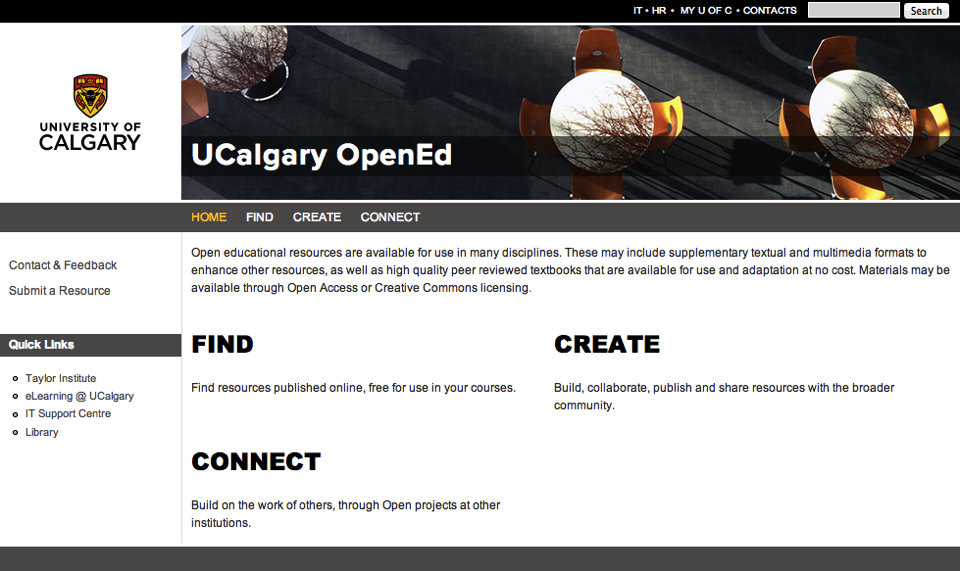One of the things I had on my 1-year plan for The New Job™ was development of an “Open UCalgary” website, akin to the awesome work done by others1. At the last Teaching & Learning Committee meeting, we were sketching out a revised draft of a memo to faculty members, intended to showcase strategies to reduce costs to students. One of the items was about open education resources and the like, so I floated the idea of the website2. And, just like that, boom. Green light for the website. Which meant I had to throw something together pretty darned quickly, to be online in time for the memo to be finalized and sent out.
So. The early version of Open UCalgary is now online.
It’s super basic at the moment, to serve as a starting point to refer folks to resources and projects available both on-campus and elsewhere. I’ll be building the website up over the next few months, and will be working to showcase the great stuff that’s going on at the UofC, as well as pulling in the inspiring and immediately applicable stuff that’s being done elsewhere.
And, this is just the first of many things I’ll be working on from my 1-year plan. Most of them involve blatantly ripping off the awesome stuff being done by folks I respect and admire3. It’s going to be a fun year!
-
- Open UBC
- Open BCCampus
- Open RoyalRoads
- and many many more…
[↩]
- frankly, it was either that, or just refer directly to the URLs in footnote 1 [↩]
- and also Jim Groom [↩]
